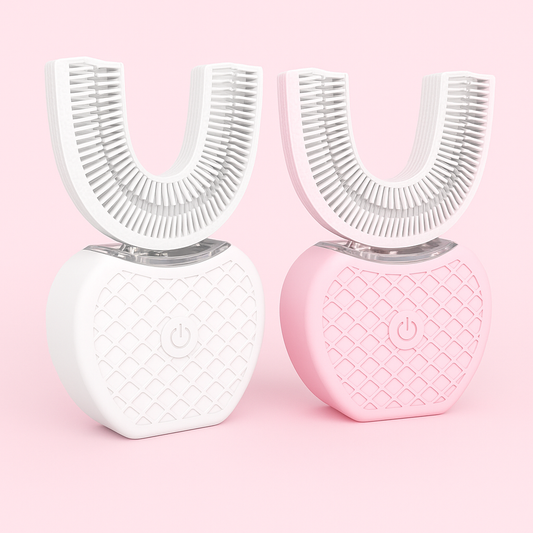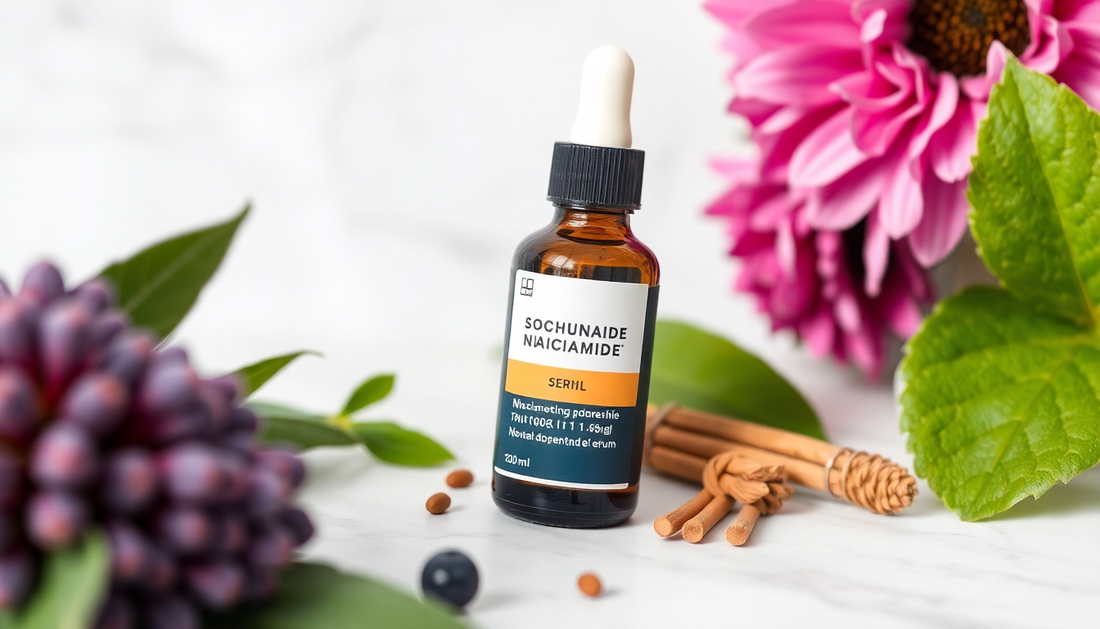Introduction to Niacinamide
Niacinamide, also known as vitamin B3 or nicotinamide, is one of the most celebrated skincare ingredients in 2025, and for good reason. This multi-tasking powerhouse has taken the beauty world by storm, promising a wide array of skin benefits without the harsh side effects often associated with other active ingredients. Whether you’re a skincare novice or a seasoned expert, understanding niacinamide’s role in your regimen is essential to achieving radiant, healthy skin.
In this comprehensive guide, we’ll delve deep into what niacinamide is, its numerous benefits, how it works on the skin, the best ways to use it, potential side effects, and product recommendations to help you master this skincare hero in 2025.
What is Niacinamide?
Niacinamide is a water-soluble form of vitamin B3, an essential nutrient that supports cellular function throughout the body, including the skin. Unlike topical vitamin C, which can be unstable and sometimes irritating, niacinamide is stable and well-tolerated, making it suitable for all skin types.
At the cellular level, niacinamide improves the skin’s ability to repair itself and maintain a healthy barrier. It enhances the production of ceramides, key lipids that lock moisture into the skin, and supports DNA repair mechanisms to combat damage caused by UV radiation and pollution. This makes niacinamide a powerful ally in both preventative and corrective skincare.
The Science Behind Niacinamide’s Skin Benefits
Scientific studies have consistently demonstrated niacinamide’s efficacy in improving skin health. Here are some of the mechanisms that make it so effective:
- Enhances Skin Barrier Function: Niacinamide boosts the synthesis of ceramides and free fatty acids, which are critical to maintaining a strong and resilient skin barrier. A healthy barrier prevents transepidermal water loss (TEWL), keeping skin hydrated and protected against irritants.
- Reduces Inflammation: It has anti-inflammatory properties that soothe irritated skin and reduce redness, making it effective for acne, rosacea, and sensitive skin conditions.
- Regulates Sebum Production: Niacinamide balances oil production, which helps control acne and reduces the appearance of pores.
- Brightens Skin Tone: By inhibiting the transfer of melanosomes from melanocytes to keratinocytes, niacinamide reduces hyperpigmentation and dark spots, promoting a more even complexion.
- Supports Collagen and Elastin: It stimulates dermal collagen and elastin synthesis, contributing to firmer, more youthful skin.
Comprehensive Benefits of Niacinamide in Skincare
Thanks to its multi-faceted action, niacinamide addresses a variety of common skin concerns:
- Hydration and Moisture Retention: Prevents dryness by strengthening the skin’s natural moisture barrier.
- Anti-Aging Effects: Smooths fine lines and wrinkles by encouraging collagen formation and improving skin elasticity.
- Acne Treatment and Prevention: Reduces inflammation and regulates oil production, minimizing breakouts and redness.
- Minimizes Pore Appearance: Helps refine skin texture and visibly shrinks pores.
- Hyperpigmentation and Even Skin Tone: Fades dark spots, sun damage, and discoloration for a brighter, more uniform complexion.
- Soothes Sensitive Skin: Calms irritation and strengthens skin resilience.
How to Incorporate Niacinamide Into Your Skincare Routine
Niacinamide’s versatility means it can be easily added to most skincare routines. Follow these tips to maximize its benefits:
1. Choosing the Right Concentration
Niacinamide products typically range from 2% to 10% concentration. Research shows that concentrations around 5% are effective and gentle for most skin types. Highly sensitive skin may want to start with lower concentrations to avoid mild irritation.
2. Application Guidelines
For optimal results, apply niacinamide after cleansing and toning but before heavier creams or oils. This ensures proper absorption. Niacinamide is available in various formats, including serums, moisturizers, toners, and even cleansers.
3. Layering With Other Ingredients
Niacinamide is compatible with most skincare ingredients, including:
- Hyaluronic Acid: For enhanced hydration.
- Retinol: To reduce irritation and amplify anti-aging benefits.
- Peptides: To support collagen production.
However, avoid layering niacinamide directly with pure vitamin C (ascorbic acid) in the same application step, as it can reduce the effectiveness of both. If you want to use both, apply vitamin C in the morning and niacinamide in the evening, or separate their use by 30 minutes.
4. Frequency of Use
Niacinamide is safe for daily use and can be applied twice a day—morning and night—to maintain consistent benefits.
Who Should Use Niacinamide?
Niacinamide is incredibly versatile and suitable for almost everyone:
- Oily and Acne-Prone Skin: Controls sebum production and calms inflammation.
- Dry and Sensitive Skin: Strengthens the moisture barrier and soothes irritation.
- Mature Skin: Reduces signs of aging by supporting collagen and elastin.
- Uneven Skin Tone and Hyperpigmentation: Brightens and evens out complexion.
- Those Prone to Redness or Rosacea: Calms redness and strengthens skin resilience.
Potential Side Effects and Precautions
Niacinamide is generally very safe, but a few considerations are important:
- Mild Irritation: Some users may experience slight redness, itching, or burning when first starting niacinamide. This can often be minimized by starting with a lower concentration and gradually increasing usage.
- Allergic Reactions: Though rare, if you notice swelling, severe redness, or rash, discontinue use and consult a dermatologist.
- Compatibility with Other Ingredients: Avoid mixing niacinamide directly with acidic vitamin C formulations to prevent irritation and maintain efficacy.
- Patch Testing: Always perform a patch test before introducing any new product into your routine.
Expert Tips for Maximizing Niacinamide Results
- Be Patient: Like most skincare ingredients, visible results with niacinamide can take 4–8 weeks.
- Combine with Sunscreen: Using niacinamide alongside daily broad-spectrum SPF protects your skin and enhances its brightening effects.
- Maintain Consistency: Regular, daily use is key to long-term benefits.
- Customize Your Routine: Consider your unique skin type and concerns when choosing niacinamide products and complementary ingredients.
Top Niacinamide Products to Try in 2025
The skincare market in 2025 offers a diverse range of niacinamide-infused products. Here are some standout options:
- Niacinamide Serums: Lightweight, fast-absorbing serums with 5%–10% niacinamide concentration are ideal for targeted treatment.
- Moisturizers with Niacinamide: These deliver hydration and barrier support while providing niacinamide benefits.
- Toners and Essences: Great for layering and prepping skin for subsequent products.
- Spot Treatments: Concentrated formulas that target breakouts and hyperpigmentation.
- Combination Products: Formulations combining niacinamide with peptides, antioxidants, or hyaluronic acid offer multi-functional benefits.
Some highly recommended brands in 2025 include The Ordinary, Paula's Choice, CeraVe, La Roche-Posay, and Drunk Elephant, all offering effective and affordable niacinamide products.
Frequently Asked Questions About Niacinamide
Can I use niacinamide with retinol?
Yes, niacinamide complements retinol well by reducing irritation and enhancing skin barrier repair. Apply niacinamide first or layer in separate steps for best results.
Is niacinamide safe during pregnancy?
Niacinamide is generally considered safe during pregnancy, but it’s always best to consult your healthcare provider before starting new skincare products.
How long does it take to see results from niacinamide?
Most users begin to notice improvements in skin texture, tone, and hydration within 4 to 8 weeks of consistent use.
Can niacinamide help with acne scars?
Yes, niacinamide can lighten post-inflammatory hyperpigmentation and improve skin texture, making it beneficial for acne scars.
Conclusion
Niacinamide stands out as a remarkably effective, gentle, and versatile skincare ingredient in 2025. Whether your goal is to achieve brighter skin, reduce acne, minimize pores, or fight signs of aging, niacinamide offers scientifically backed benefits that cater to all skin types and concerns.
By understanding how niacinamide works, applying it correctly, and choosing quality products, you can unlock a radiant, healthy complexion that truly glows from within. Start incorporating niacinamide today and embrace the confidence that comes with healthier, more resilient skin.


